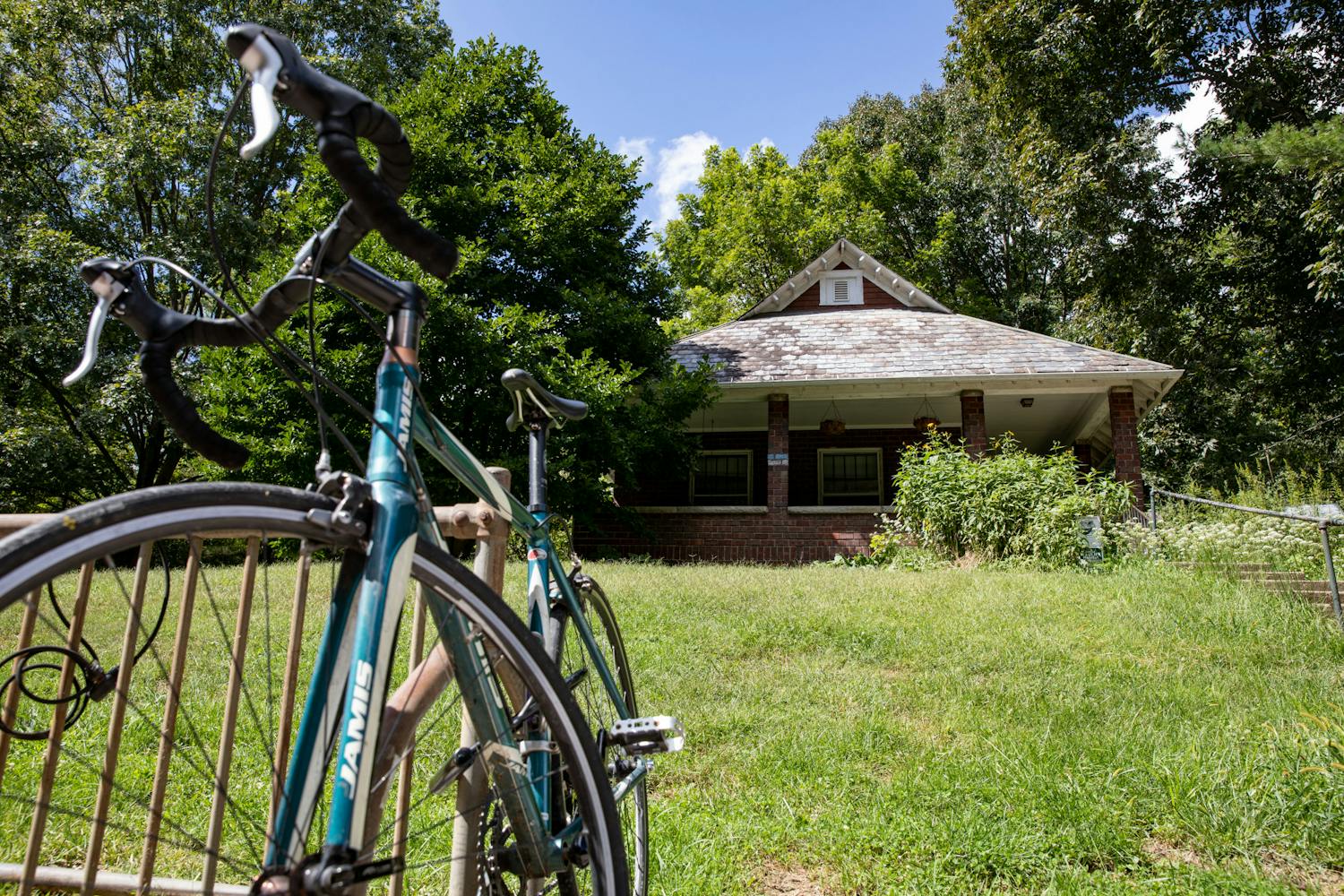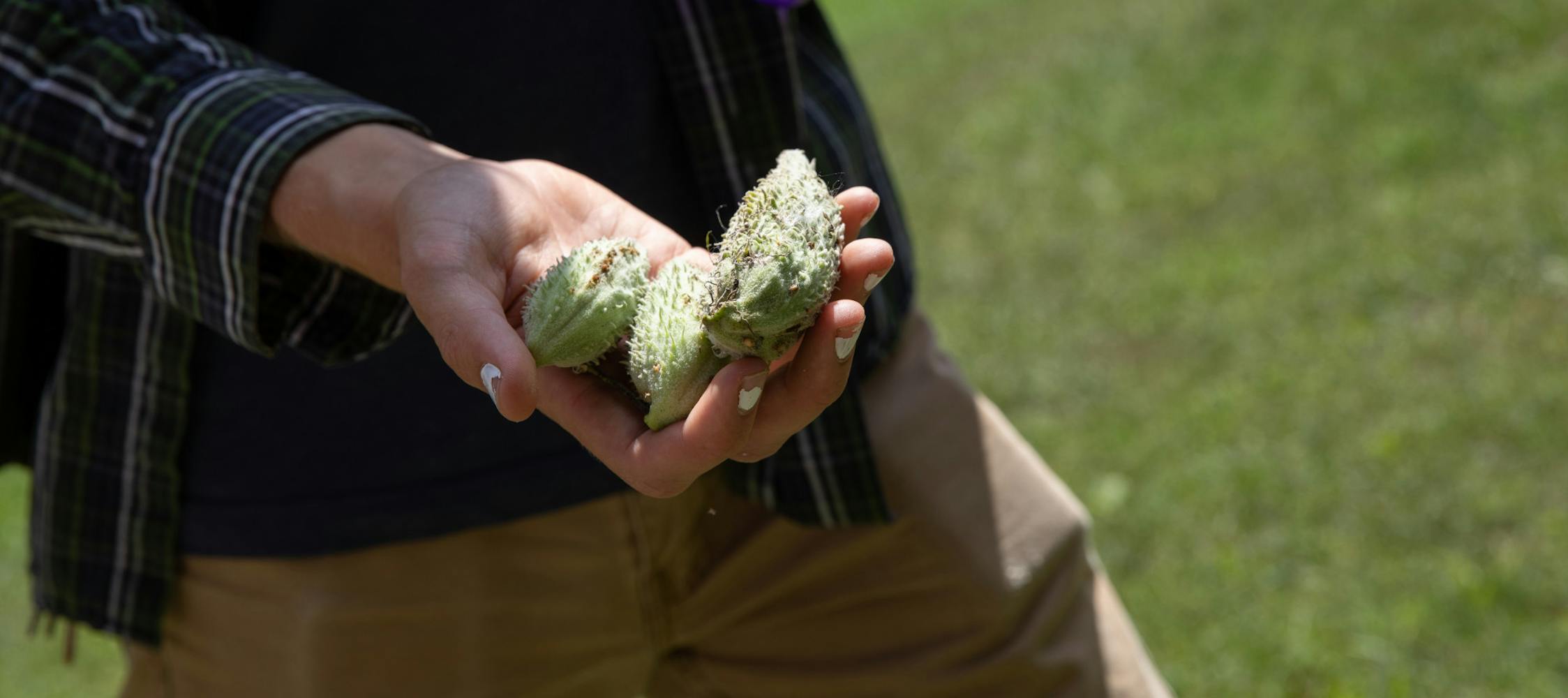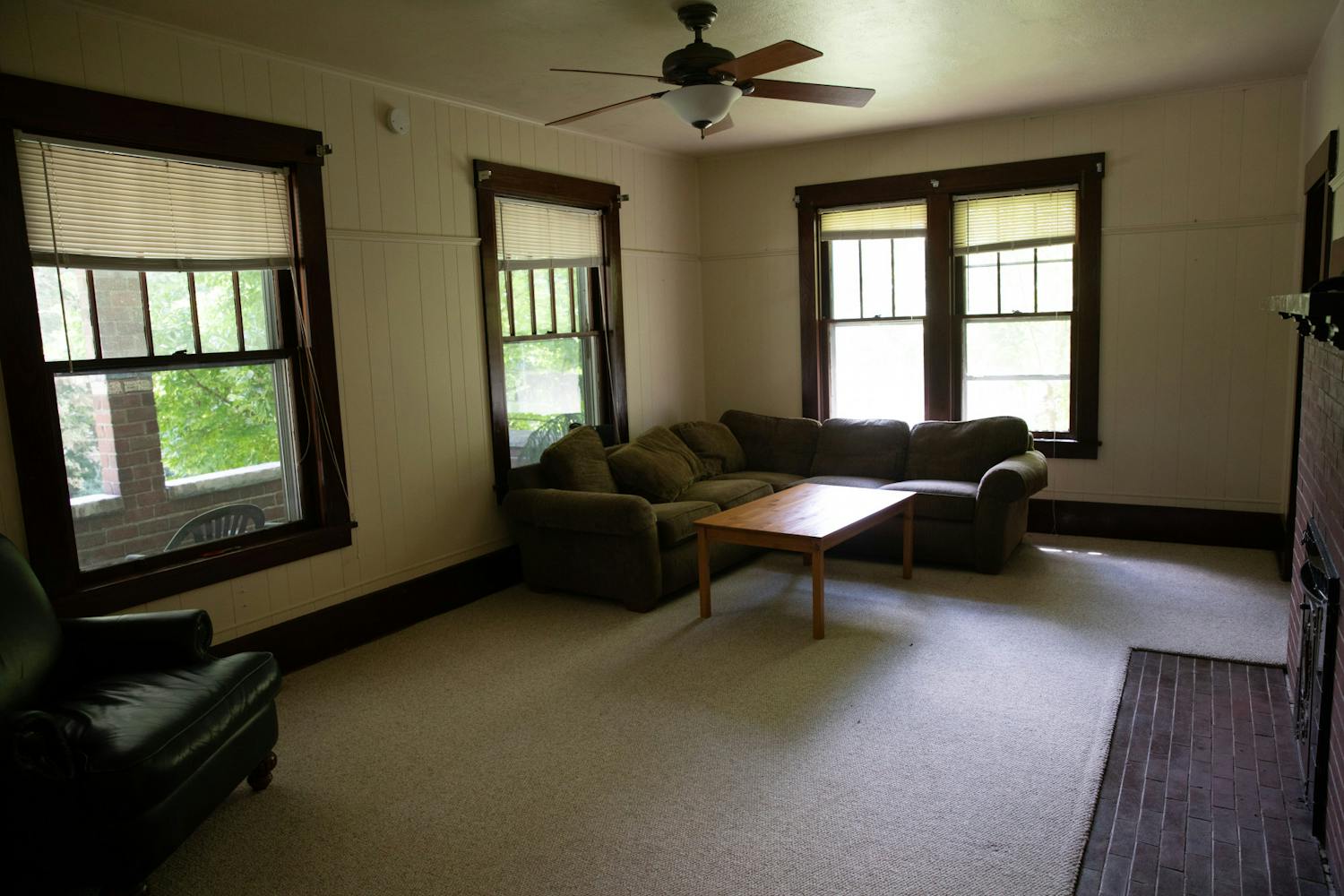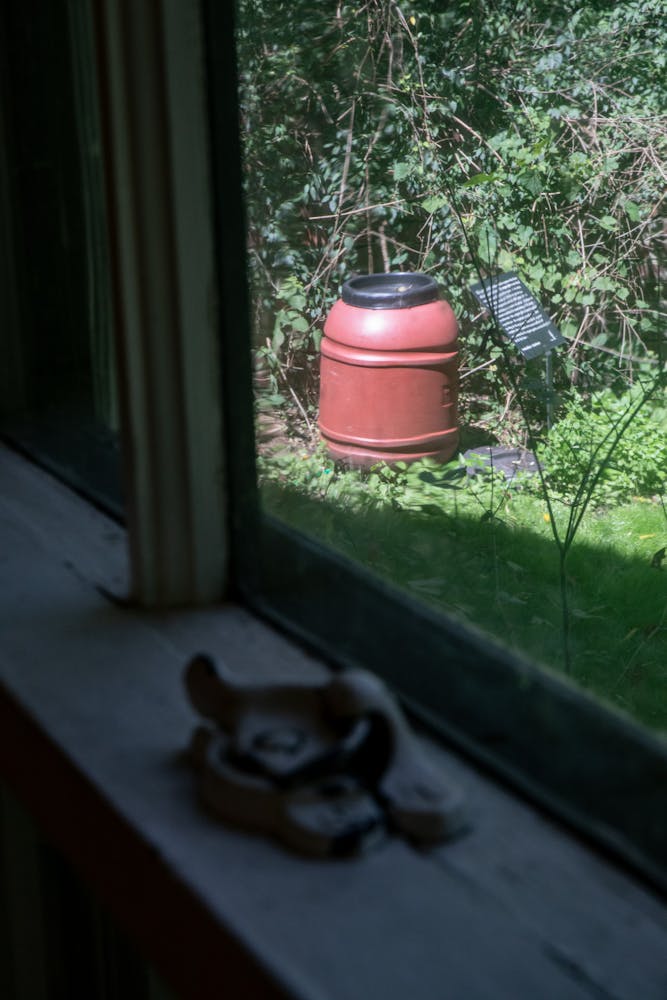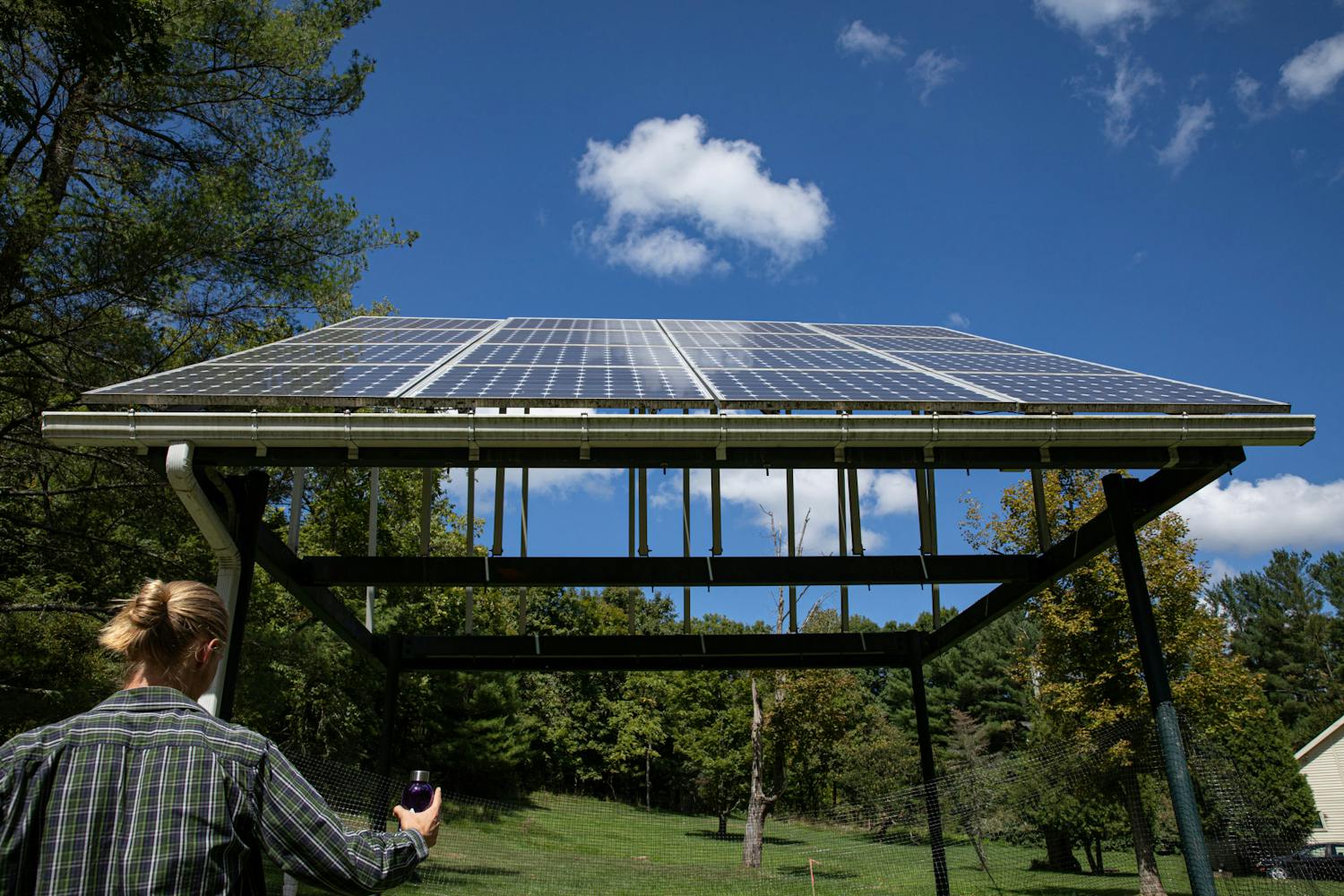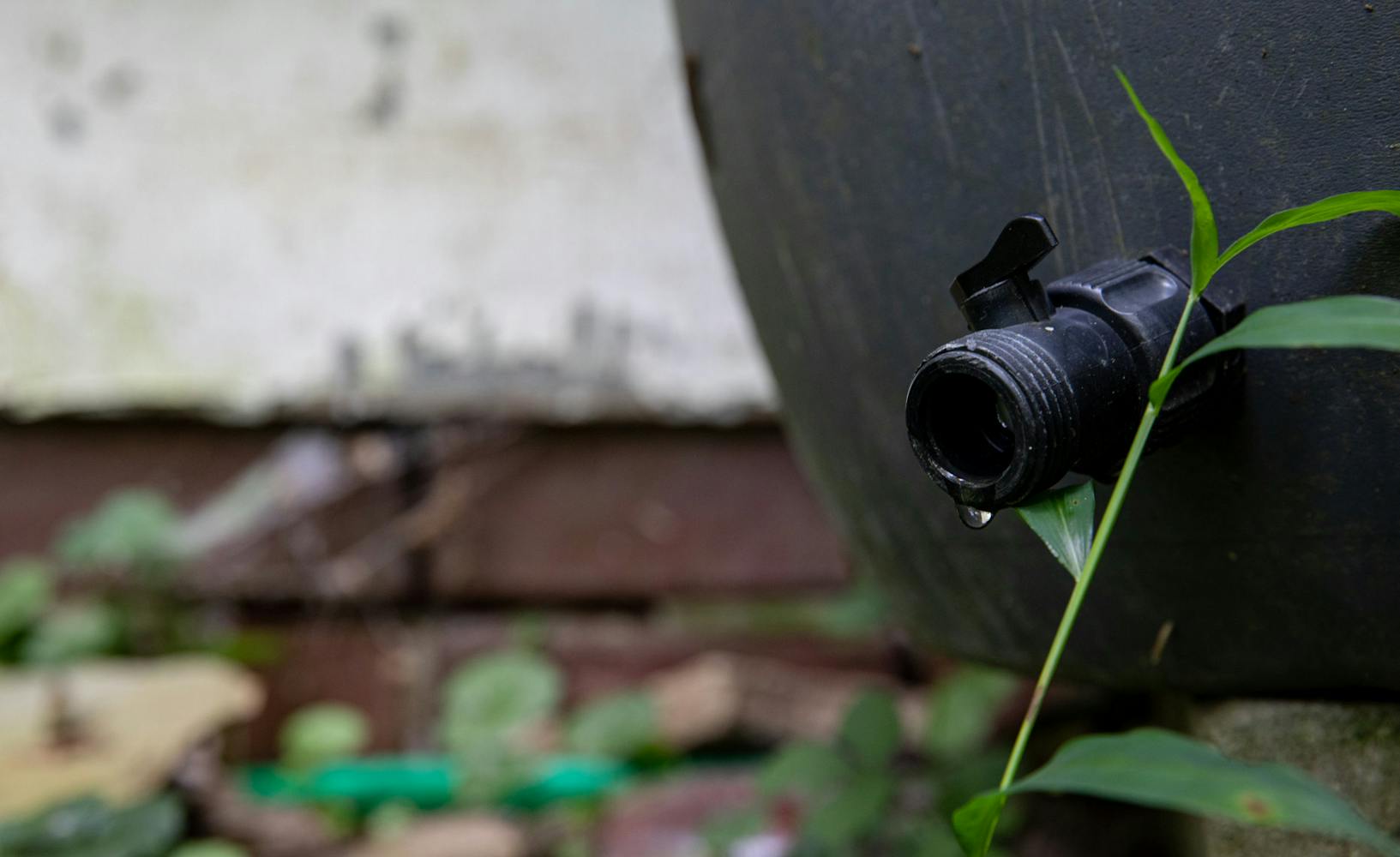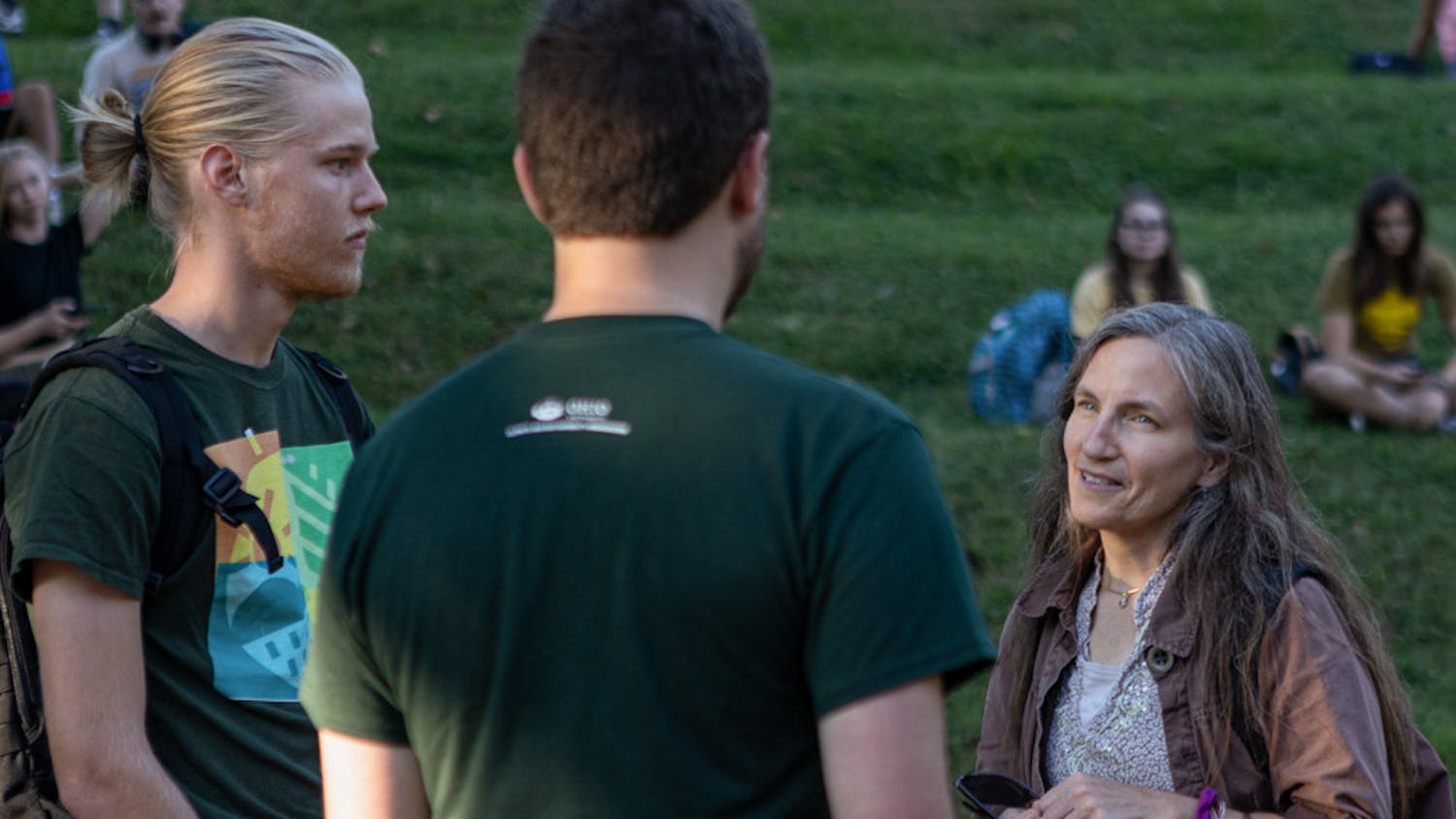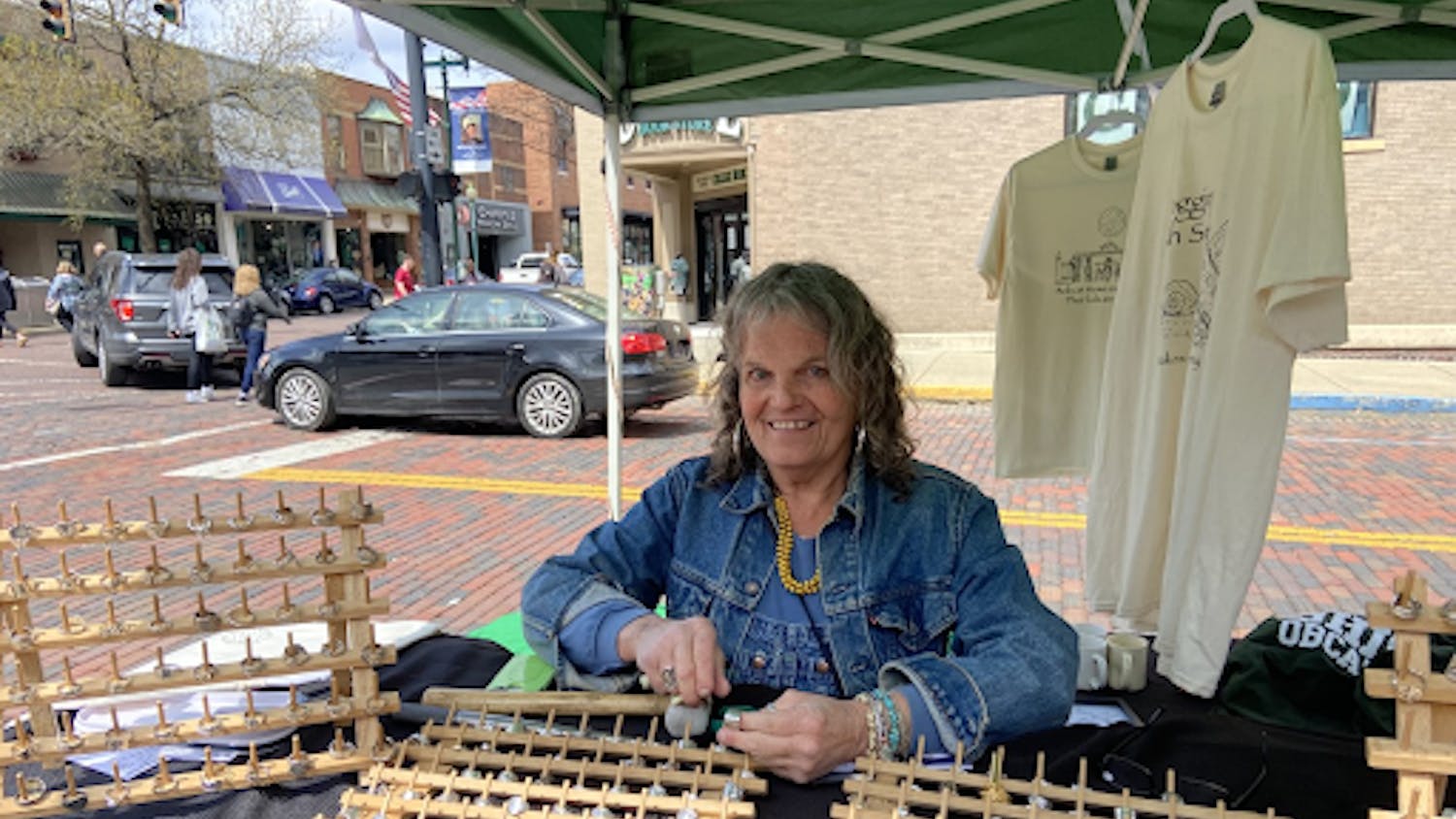Surrounded by a luscious organic garden, winding hiking trails and extensive solar panel arrays lies Ohio University’s Ecohouse—a place with deep-rooted history in Athens.
Situated between the Dairy Barn and behind The Ridges is the Ecohouse, a sustainable housing option for upperclassmen. Easily accessible by car and close enough for a comfortable walk, the house is located at 8133 Dairy Lane and has more to offer than what meets the eye.
According to a case study from the National Wildlife Federation on the Ecohouse, the house was designed to support up to three students and demonstrate green technology and sustainable living practices in order to inspire residents and visitors. It also serves as an educational hub between the OU Office of Sustainability and the local community.
The house has several features: a solar thermal water heating system, Energy Star rated appliances, organic vegetable garden, rainwater harvesting systems, an outdoor clothes dryer and composting areas.
With the home being nearly a century old, Ecohouse is a place where environmentally-conscious students can keep track of their own carbon footprints, electrical output and water usage. As a sustainable housing opportunity for juniors and seniors, the application process has few steps, including a personal essay.
To apply, students must determine their eligibility. Students must have over 90 credit hours and have lived on campus for four semesters. For the personal essay, students need to write a 500-1,000 word statement regarding their interest in living in the house and how their skills would contribute to a positive living environment.
Sam Crowl, associate director of sustainability at OU, said the application process is straightforward and that students’ personal essays play a larger role in determining eligibility because of interest in sustainability.
“Any student who is eligible to live off-campus, so that would be mostly juniors and seniors, are eligible to apply to live in Ecohouse,” Crowl said. "The application is pretty straightforward—just some basic information about who you are and then the main part of the application is an essay. So, (they’re) looking for your interest in sustainability, your interest in others who care about the environment and about learning about sustainability. And obviously, when we're reviewing the applications, those people who are really interested in the sustainable living lifestyle, are more likely to get an invitation to live there than those who are just looking for a convenient location.”
Crowl also said alongside eligibility, Ecohouse resident students are also required to take a one-credit hour seminar that is centered around community engagement and sustainable practices, like creating upcycled crafts, candle making and taking tours of compost facilities. Each resident also commits to a year-long sustainable project around the house.
“Residents in the Ecohouse are required to do a year-long project that is really to their own choosing,” Crowl said. “Often, there is a member who wants to take care of the Ecohouse garden, which is the case this year and was the case pre-COVID. Another member is going to look into adding pollinator landscaping features to the house. The third resident was going to look at utilizing the house as rain barrels more effectively.”
The Ecohouse is currently occupied by three students who each share an interest in sustainable living and sustainable practices.
One resident, Ridge Cook, a senior studying field ecology, said that despite living in an older home, he’s made modifications to the Ecohouse alongside his other roommates to make it a more sustainable space.
“Just the fact … that it is an older house, and from the outside looks like a fairly normal house for Athens, but there's these small modifications to it that allow us to make it more sustainable and that's what we get to talk to people about,” Cook said. “We have a weekly cleaning schedule and stuff like that. We (also) know exactly how much waste that we have normally because we take out the trash pretty regularly.”
For younger students who have an interest in living in the home, these modifications could prolong the good condition of the home and its sustainable practices.
Catherine Galla, a sophomore studying environmental studies, said she was familiar with the house and researched living there once she was able to gain enough credit hours to apply.
“I'm actually quite familiar with the Ecohouse … I've actually looked into living there,” Galla said. “I don't have enough credits yet (and) I know that you have to have some prior commitment before living here, that you are going to commit to these sustainable ways. So it's not just something that you do, but it's making it more an adaptation to your lifestyle. And I know it's up at The Ridges—it has a garden up there and there is a solar panel out there. It's a very cute house.”
Ridge also had advice for upcoming residents of the house once he graduates—students like Galla, who may be interested in living there.
“I think for Ecohouse residents, it's important to be engaged in the community and even just for students in general,“ Cook said. “My freshman year, my second semester here, I joined the climate and sustainability ambassadors and that kind of opened up a lot more doors for me. So, everybody says to get involved, but it is really good advice for college and I think that’s what students can stand to do more is get involved in the community. And not just the university community, but the Athens community, (and) making an effort to be a part of that as well.”


